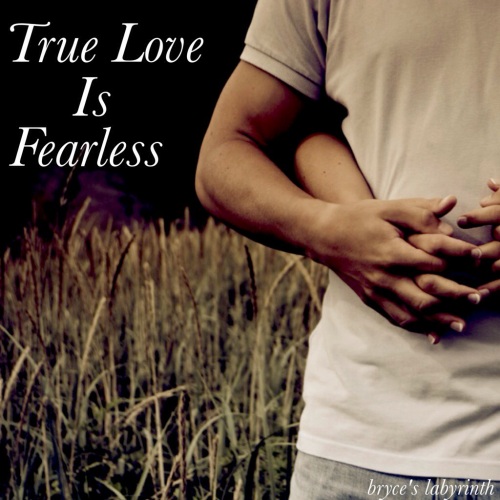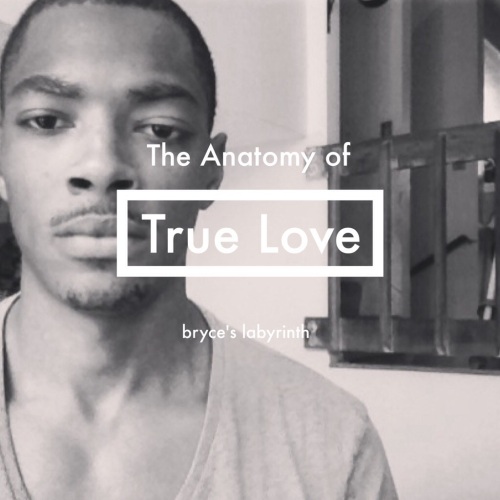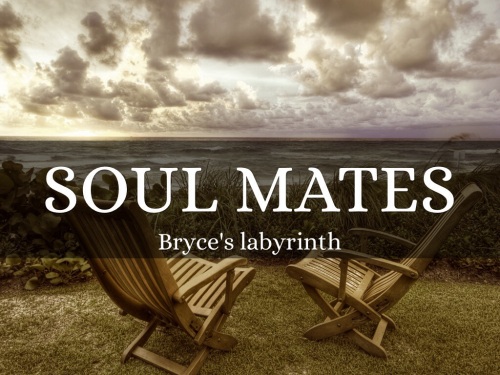Loving Fearlessly II
I was recently having a conversation with my mom when she said, “you know, Bryce, you often go on about how selfish you are, but I really don’t think you’re selfish enough, especially when it comes to love.”
Don’t cast your pearls among swine. Not everyone deserves to see who you are.
All that.
And yet, here I am, a notch before 26 years of age, doing the very same things that have been questionable in the past. I am an open book. I’m rarely demanding, outside of a select few baseline necessities, and I am quick to love.
Let’s backtrack. My last post concerning love spoke of my tendency in the past to create functional exchanges moonlighting as true love. I found myself in unions which were really nothing more than marketplaces for fond feelings and special hugs. Through my own maturation and self-reflection I realized that as much of an open book as I was, I was still intensely guarded, intently selfish, and unfair in my dealings.
However, what I was adept at doing was opening myself to become empathic to the concerns of the woman I was involved with. It wasn’t unusual to see me walking miles to go see someone or waking up at all hours of the night just to be a shoulder to cry on. I’ve always been someone that others confide in and that goes doubly so in relationships; I very quickly become someone’s convenient refuge.
Convenient. Very, very important difference. Per the aforementioned words of my mother, I was usually nothing more than temporary solace in some beautiful young woman’s development. The reason why is actually the topic I want to introduce today. For me, decisions are an ongoing process, like a feedback loop, which begins the moment a person enters into my life. That entrance is rarely romantic. For instance, if I meet a young woman in class, then her presence is now calculated into my greater understanding of humanity. The moment I meet someone, I consider whether I would ever date them, take them seriously, enjoy their company, grab a coffee, etc. As we get to know each other more and more, I will literally vet everything they express to me and draw some tentative conclusion. Lets say that we agree to begin dating, that process only intensifies; now, with more face time and more interaction, I am able to scour the deepest recesses of her soul to see if I see any compatibility.
Thus, most people tell me I tend to move too quickly. For a while, I agreed, now I am ambivalent. Life is too dynamic to ascribe some set of rules to metaphysical conduct.
In my eyes, all things boil down to will, a concept I expressed in my last love related post. What people want to do, they will do, even if that thing is destructive or unconscionably hard. Becoming vulnerable for most folks is an unbearable process; so much pain and so much hurt is put on the line for the possibility of being rejected or maliciously wounded. For most, if not all people, they need to unfurl their person in bits, always holding the cards close to their chest in case of a quick escape or painless exit.
Yet, even science agree that it takes men a very short time and woman a little longer, but still incredibly short amount of time to know if they love someone.
I ascribe ultimate judiciary power to the mind, therefore, this poses a very curious paradox. The mind, usually unconsciously, can love virtually instanteously, yet, the conscious mind, the lying mind, the deceptive mind, causes itself to remain cautious in the name of protectionism. The unconscious mind is absolutely unconcerned with matters of utility; it is a violent world of prescience and intuition which are rarely concerned with anything even closely resembling conscious utility. Of coure, most of us spend more time examining our conscious minds, as any access to the unconscious is rather dubious scientifically speaking…
Fear.
The conscious mind’s obsession with maximum utility, or maximum profit, stems from its need to reduce fear. I am speaking of fear on all levels, not just those associated with terror. Fear is actually the opposite of love; whereas love can permit itself to be exchanged and flourish without concern for reward, fear is constantly concerned with status quo and reciprocation. To love truly is to not be concerned with whether or not love will be returned to you; it is a permanent state of oneness with one’s self and their surroundings. When you love someone, you wish to integrate them into your self. You wish them to become an extension of you and you an extension of them.
Fear precludes this from happening. Fear is the voice which which reminds you that you are too young, too damaged, too ugly, too fat, too cool, too this or too that. Fear will keep you paralyzed and force you into romantic exchanges which are resolutely functional. The basis of functional relationships is the fear of given in too deeply.
I spend some an obscene amount of time in my own mind that I am confident when I make a decision to love a woman. Historically, I have been fearful of their ability to love me in return, hence my propensity to enter functional exchanges. I always know that I love purely, but I haven’t always been sure that this would be returned to me. Thus, I laid the foundation for discovering what true love was, loving without obsessing over whether or not this would be returned, yet, I was still fearful and ultimately gave into protecting myself.
So what, bryce? Are you advocating freely giving myself out to anyone I get butterflies around? Absolutely not, that would not be wise. However, I am advocating a pure expression of who you are at all times, not playing the game of “getting to know” people. Imagine if people got into the habit of actually exhibiting who they were from the jump? That would be amazing would it not?
However, people don’t do that, ulterior motives still dominate the social world, and fear still eats at us all. So, in order to resolve this dissonance, I wager that we should get in the habit of being extremely observant of our surroundings. When you meet someone, look for who they truly are, because no matter how dynamic a personality, they will reveal bits of their character that penetrate down to the bone. Look for moments of vulnerability that don’t directly concern you and watch how they respond. Look at how they treat someone of lesser status or position than them. Watch how they treat their peers, how they treat others of their same sex or the opposing sex. Spend as much time as you can putting yourself in their shoes, reconstructing their story per the specifications you are aware of, then look into your heart to see where you are.
If they’re a bad person after you’ve gone through this process make the decision to walk away. If they’re a good person with a lot of rough edges, make the decision to stay. Make the decision to join them on their journey. Don’t fear whether they will love you in return or not, something too few of us are capable of doing. Be judicious about your time and your resources, don’t allow yourself to be used, but allow yourself to be available.
Life is not complicated, humans are. Be the simplicity in someone else’s life. Be the consistency in their life. If you choose to be with someone, be with them. Whether things work out or they don’t is irrelevant. Sow seeds of selfless love and be prepared to reap serious blessings in all aspects of your life.
bryce



